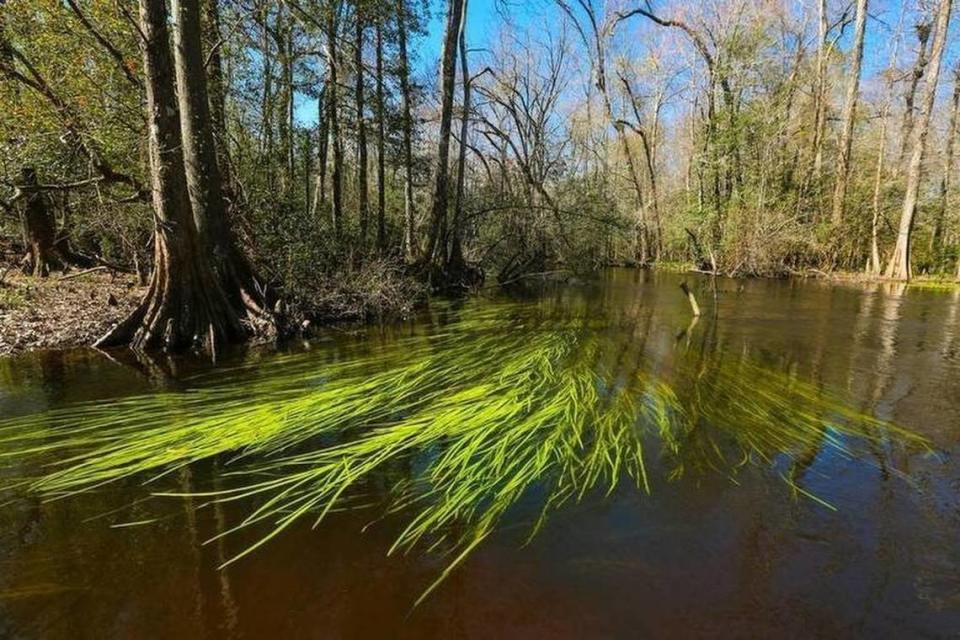Are giant farms threatening rivers? Water dispute over mega-farms heats up
South Carolina’s environmental agency won’t tighten controls over industrial-scale farms that withdraw billions of gallons of water from rivers, despite criticism the rules allow agricultural interests to take all the water.
The Department of Health and Environmental Control declined last week to seek changes in state surface water regulations that have been the source of disputes for more than a decade. A major point of contention is whether the rules protect public waterways from huge farms that siphon water from rivers.
DHEC’s decision sets up a potential court battle. The Southern Environmental Law Center asked the agency to change the regulations or it might sue over what it calls poor protection for rivers.
In a Jan. 12 letter to the law center, DHEC said the existing rules that allow withdrawals are consistent with South Carolina’s 2011 surface water law. Environmentalists say the rules are not consistent, which allows farms to siphon virtually every drop from rivers.
DHEC did say, however, that it is willing to discuss changes, some of which could be taken up in a bill at the S.C. Legislature.
“As the state’s environmental protection agency, DHEC continually works with stakeholders to identify attainable improvements to how South Carolina’s water resources can be best managed,’’ the department said in an email. “DHEC is committed to protecting South Carolina’s water resources, and all natural resources, for the benefit of all South Carolinians.’’
Carl Brzorad and Frank Holleman, attorneys for the law center, said they are considering a lawsuit against DHEC over the decision. Both blasted the agency’s decision, saying the water rules aren’t in the public interest.
“DHEC is once again refusing to protect the state’s rivers as state law requires it to do,’’ Holleman said. “Instead, it is sticking with the illegal regulations that allow rivers to be sucked dry by large corporate agricultural operations.’’
It isn’t known whether the law has allowed huge farms to take all of any river’s water, but critics of the law say that could happen.
The department’s decision follows criticism in 2022 by the U.S. Environmental Protection Agency of the state’s surface water law. The law, the EPA said, does not adequately protect rivers from overuse and is in conflict with the federal Clean Water Act. The EPA urged South Carolina to make improvements.
In the law center’s case, the environmental organization says regulations written to put the surface water law in place don’t follow the law. While the law has problems, the regulations do even less to protect rivers, the center says.

State Sen. Dick Harpootlian, D-Richland, said he’s concerned about what he calls a poor surface water law. He’s considering legislation to tighten up the law so that mega-farms and huge industries don’t pull water that the general public needs for drinking and other uses.
“Major industrial entities, like corporate farms, are not regulated in any meaningful way,’’ Harpootlian said, noting that if changes in the law aren’t made “we are going to end up where many states already are, with our groundwater and surface water depleted, and we don’t have enough water for people to drink and bathe in.’’
A spokesperson for the S.C. Farm Bureau, the major organization that represents agriculture in the state, was not immediately available for comment.
South Carolina’s 2011 surface water withdrawal law was featured in a series of stories by The State in 2017. The series looked at the environmental effects of so-called “mega-farms’’ on the Edisto River basin, a major farming area. These farms encompass thousands of acres and often stretch to the horizon.
Large farms have said they are good stewards of the environment, but industrial-scale agriculture has resulted in the loss of forests, dwindling groundwater supplies and approvals to draw large amounts of water from vulnerable rivers without public notice, the newspaper found.


